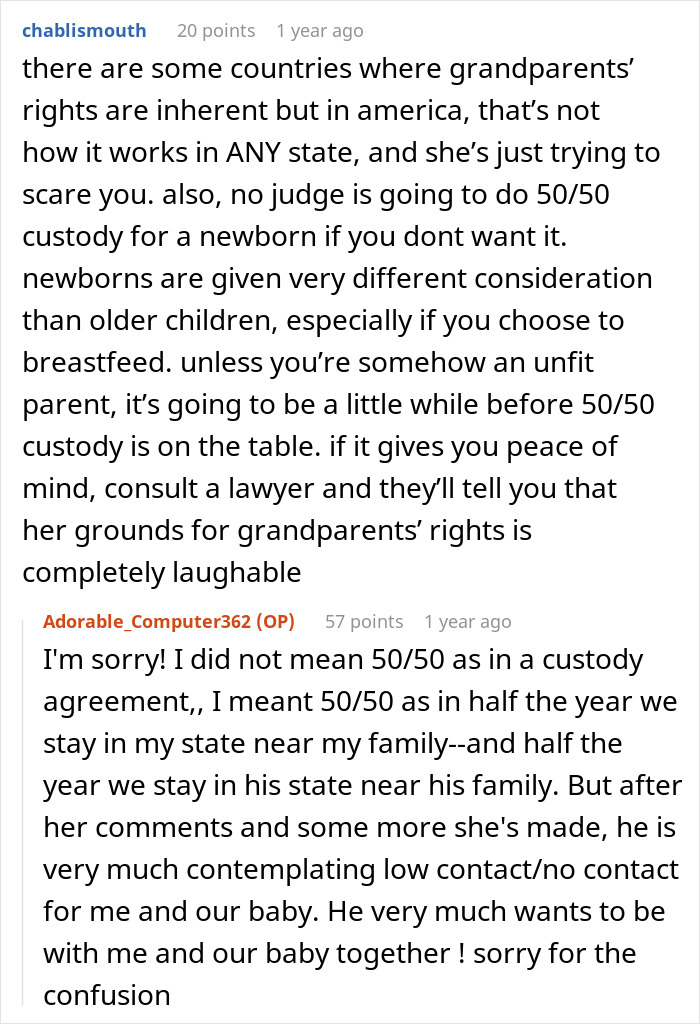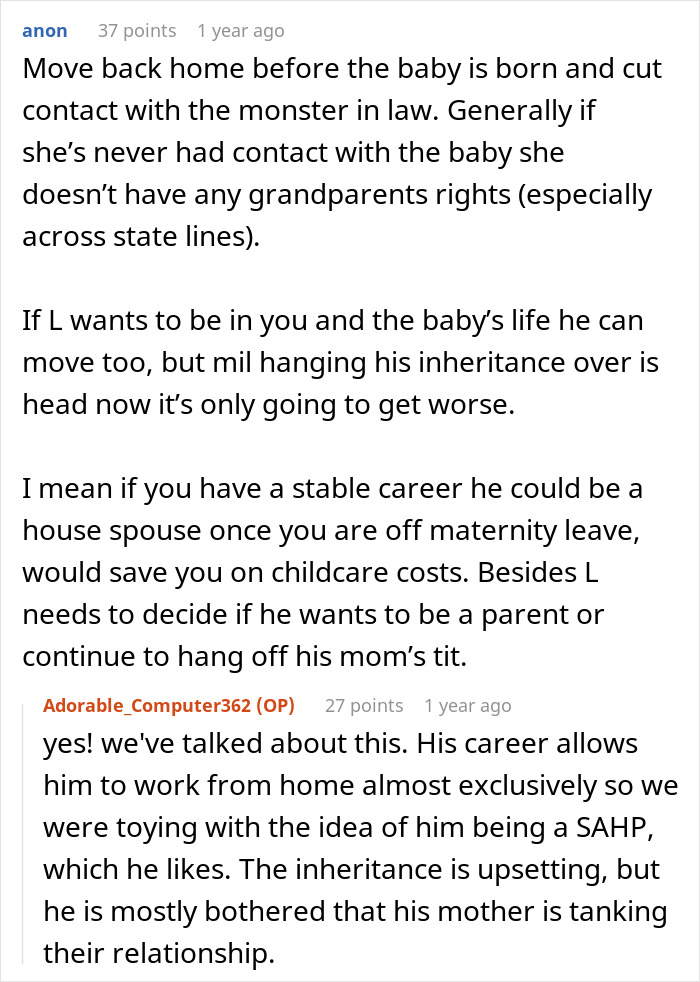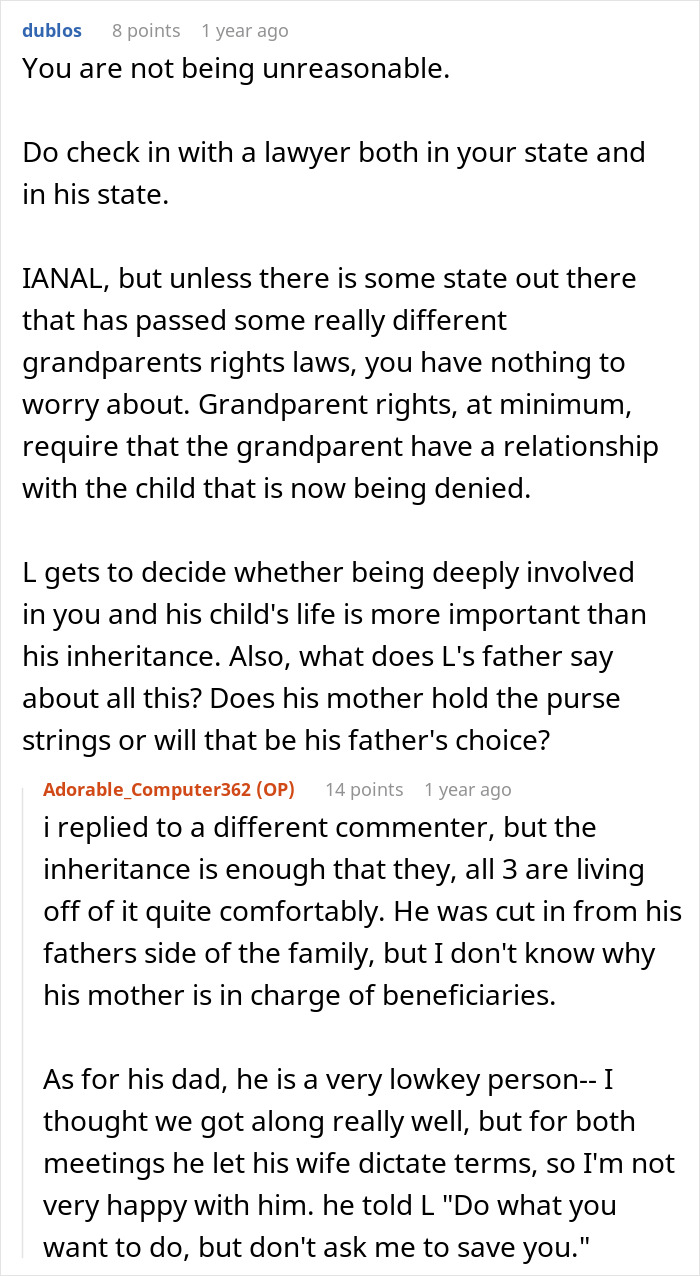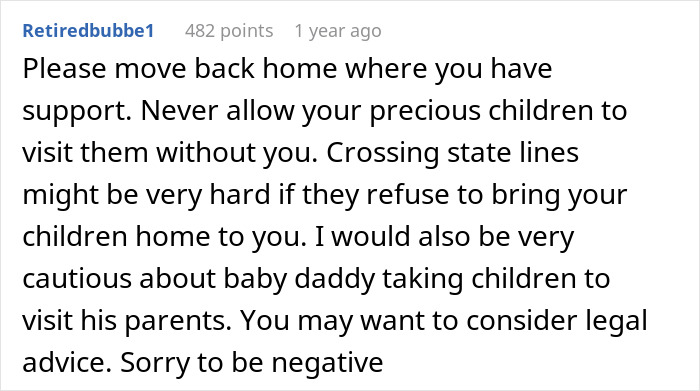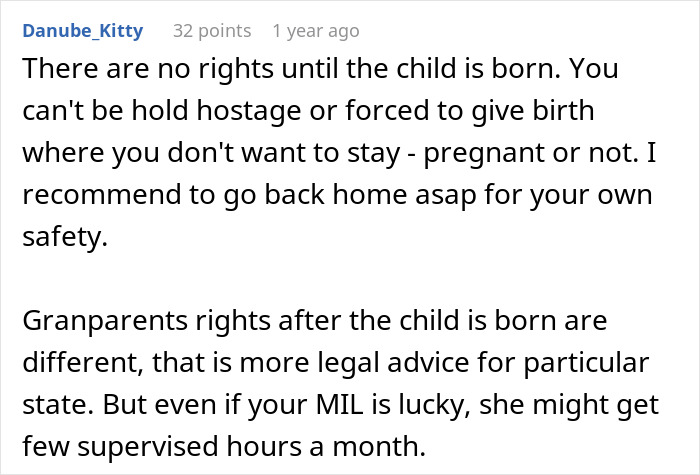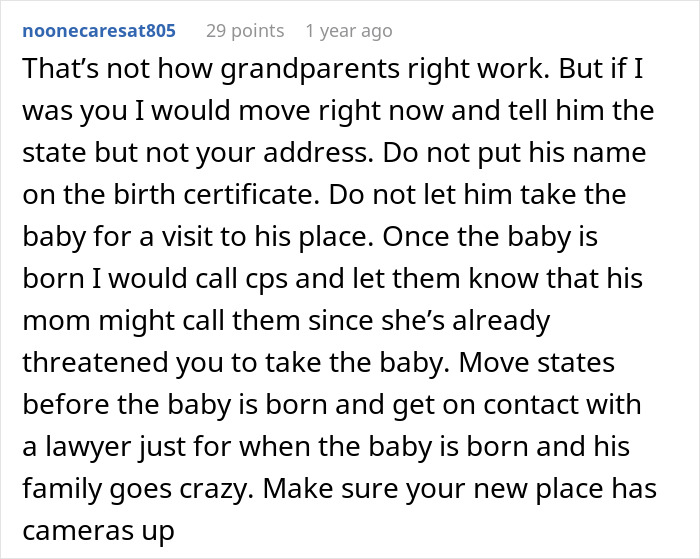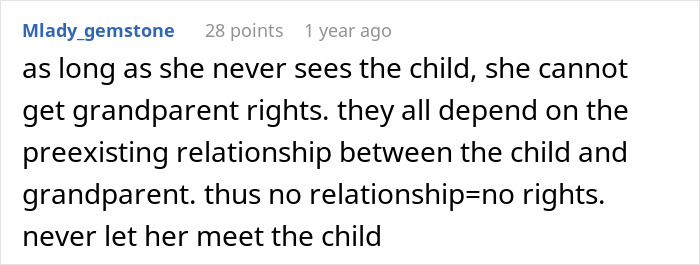Life has a way of throwing curveballs when we least expect them, often in ways we’d rather avoid. That’s what this woman on Reddit came to realize.
After finding herself pregnant from a situationship, she and her partner were excited to keep and raise their baby together. However, their plans took a turn when her mother-in-law learned they wouldn’t be living nearby and threw an outrageous fit.
Read the full story below and don’t miss our chat with relationship therapist Elinor Harvey for valuable advice on managing family conflicts.
After finding herself pregnant from a situationship, she and her partner were excited to keep and raise their baby together

Image credits: alinabuphoto/Envato (not the actual photo)
However, their plans were threatened when her mother-in-law learned they wouldn’t be living nearby
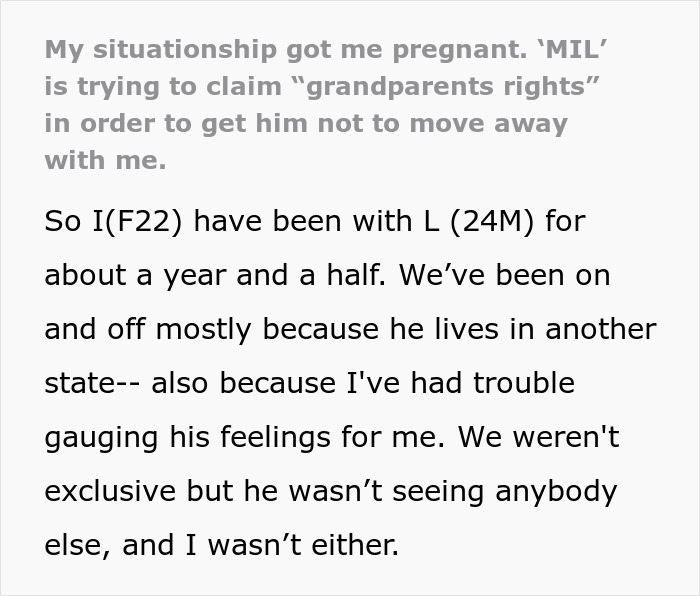


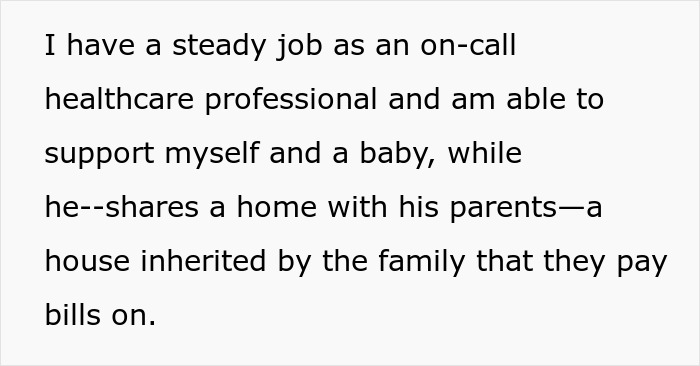



Image credits: guyswhoshoot/Envato (not the actual photo)
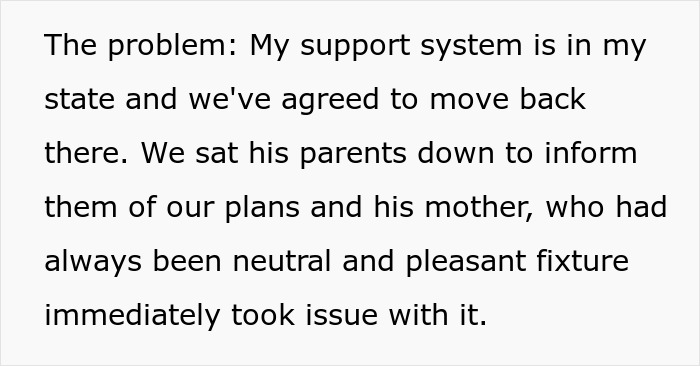
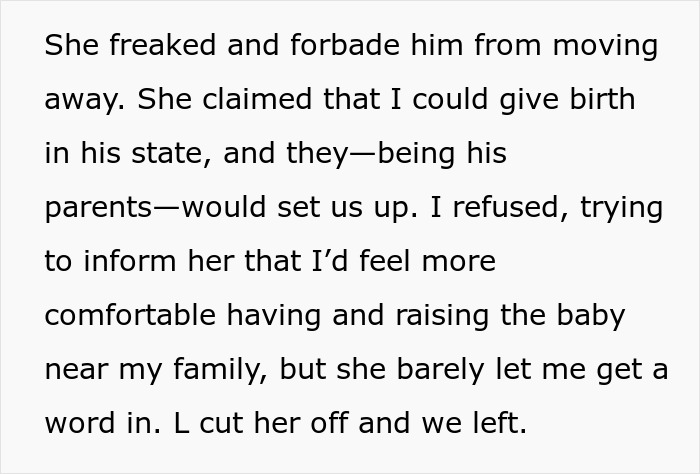
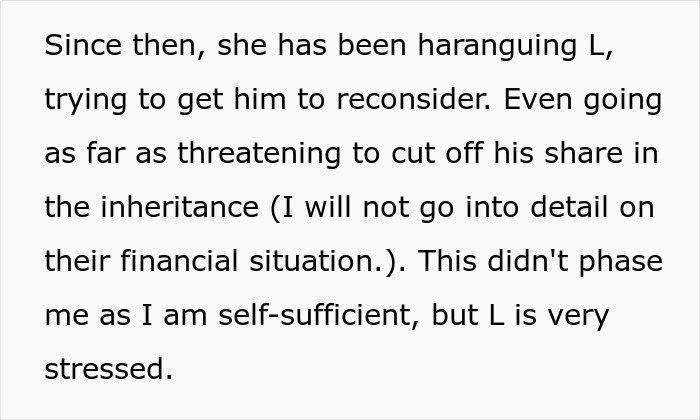





Image credits: LightFieldStudios/Envato (not the actual photo)

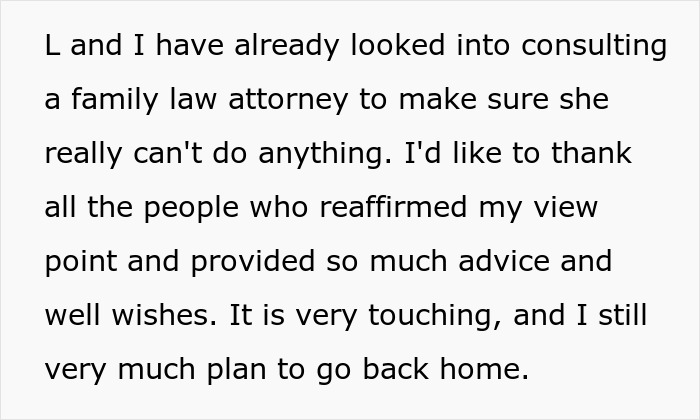

Image credits: Adorable_Computer362
It’s very common for couples to have conflicts with their in-laws
It’s only natural to want a warm relationship with our in-laws, since they become part of our extended family. So, it’s disheartening when things don’t go as hoped, as seen in the Reddit story.
To understand how to handle such situations, Bored Panda spoke with relationship therapist Elinor Harvey.
“Unfortunately, conflicts with in-laws or extended family members are very common,” Harvey tells us. In fact, 75% of couples report having issues with in-laws. Most of these disagreements occur between women and their mothers-in-law—60% say their relationship with their female in-law has caused long-term stress and unhappiness.
“This is especially true when we choose a partner at a young age, for instance, in our late teens or early twenties, as they are often still very connected to their family of origin,” Harvey explains. “If your plans as a couple differ from their family’s perspective, then conflict can occur, as it can be hard for the parents to ‘let go’ of their hold and respect their child as an adult with the right to make their own choices.”
Sometimes, a new partner can be seen as a threat, causing the family to hold on even tighter or become more resistant. Differences in social or cultural backgrounds can also create clashing expectations or values.
“However, ‘different’ doesn’t mean ‘bad,’” Harvey notes. “So trying to find ways of understanding and respecting different perspectives, and letting go of old expectations, is vital.”

Image credits: marowl/Envato (not the actual photo)
This is particularly important when it comes to significant decisions, such as how to raise a child. “Making your own decisions and accepting the consequences of those is a key part of maturity, and couples have the right to be respected by others to make those choices, even if others disagree,” insists Harvey.
One way to manage arguments, according to Harvey, is to empathize with your family’s feelings while staying true to your own choices. For example, the couple in the Reddit story might say, “We’re aware that our choice to live in another state might be upsetting and difficult for you. We don’t want to hurt you, but we’ve weighed the options, and this decision feels like the best route for us right now.”
“Having clear boundaries with wider family members, while still showing compassion for their feelings, can be a very useful path through this,” she advises.
Naturally, struggles like these can be stressful for young couples. To get through them, Harvey suggests talking openly with each other and avoiding the pressure to “double down” on your course of action.
“It’s healthy to show your doubts and worries to each other, and to lean on each other for emotional support. Working through tough times together can have a positive, bonding impact on a couple,” Harvey says. “It’s also okay that there isn’t a perfect solution sometimes. Often, we just have to choose between two hard options, but if you know you’re doing it with your child’s best interests and your own well-being in mind, you’re on the right track.”
Most commenters supported the woman’s decision and advised cutting back on contact with her mother-in-law
